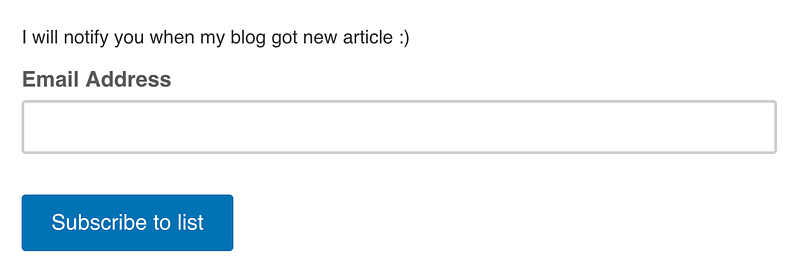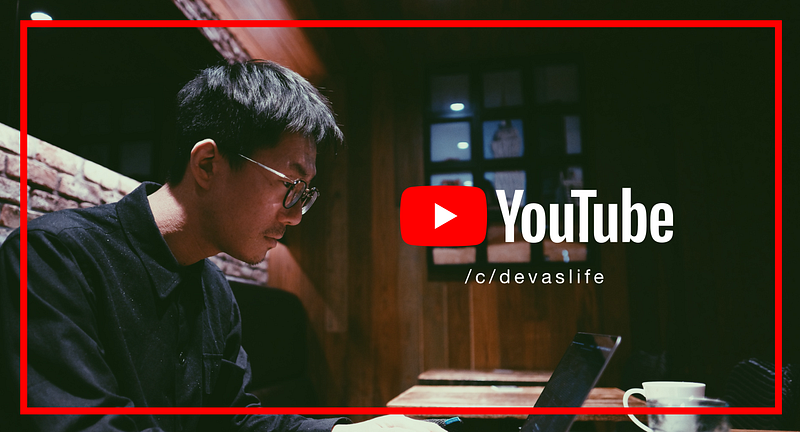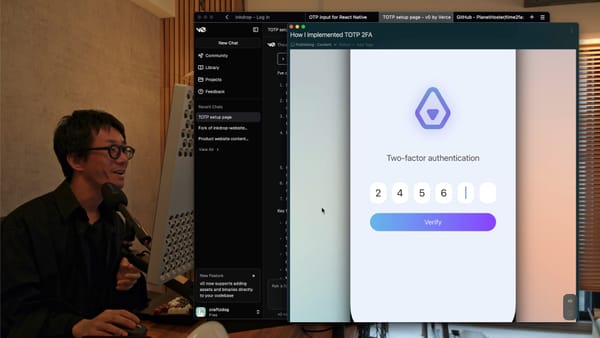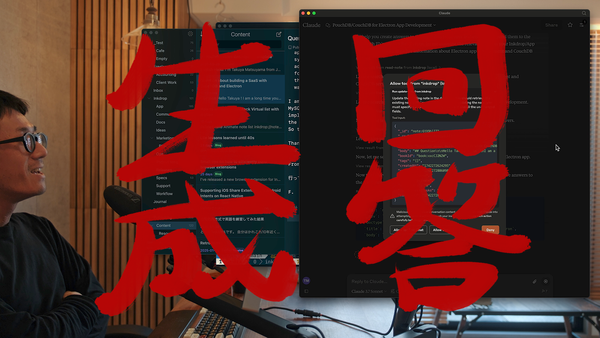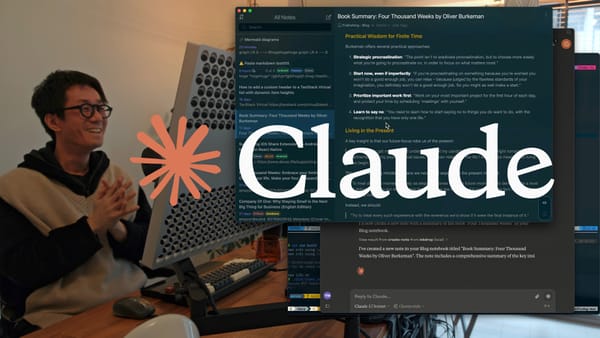I stopped setting a financial goal for my SaaS
Money can be only a short-term motivation / Make it “better” rather than “bigger” / Figuring out “enough” / Life is one shot
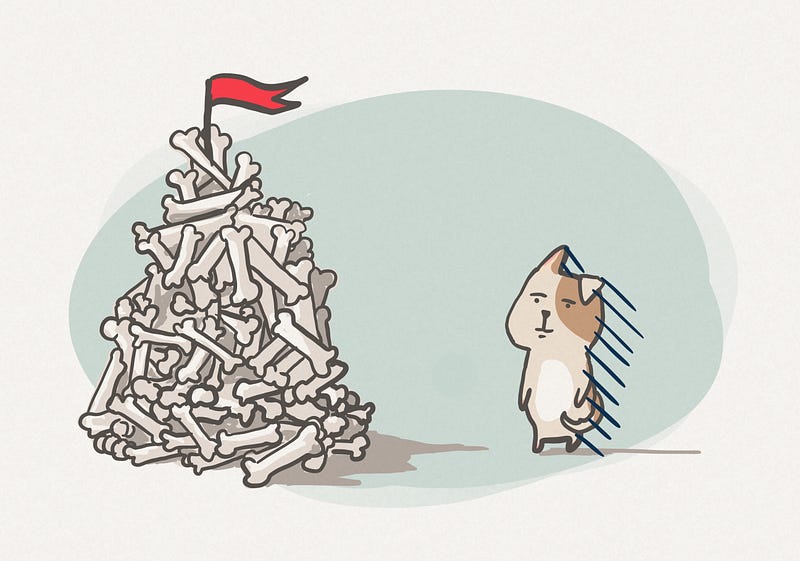
Hi, it’s Takuya. I’m building a Markdown note-taking app called Inkdrop, which is enough profitable now. It has more than 1,300 paid users and keeps growing constantly. So, I’ve achieved my goal — to make a profitable product to live off of it. It reached 10k USD sales in total recently. With holding 1,000 customers, I don’t have to worry much about covering my living costs. On top of that, it even gives me some buffers to invest myself and to go on a trip. I’m totally happy.
However, it doesn’t mean that I’ve finished my work completely because the app needs to be kept going. There are always issues to solve and features to improve. The servers should be maintained as well, or customers will quickly quit using it. I published a roadmap to tell users what features I will work on. I can see my customers are looking forward to it — So, I can’t stop.
The problem was to find next goal that would motivate me to pursue further. Because earning money no longer sparks my motivation. I couldn’t find an other appropriate goal that makes me resilient enough to endure the hard work. Then, I ended up deciding to stop setting a financial goal anymore. I found myself that keeping my project going without goals is even better than with a goal. I’d like to talk about why I decided not to set a goal and why it is more sustainable.
Money can be only a short-term motivation
I’ve written about how I kept my solo project going more than 3 years. It was about grit — sticking to something, work hard, and not quit. It looks similar though, a topic about setting a goal would be another issue.
After I accomplished the 1,000-customer goal, I found myself not so motivated than before. Because the goal has gone away when I hit it. I lost one of the reasons to stick with my desk to work hard on issues. I wanted to foster my project more, but why? for what?
Getting 2,000 paid customers didn’t sound nice as a next goal. Because the number “1,000” was just a requirement to live off of it in Japan. Yeah, earning more money is great without a doubt — That lets me go anywhere, live where I like, and buy more things. But…that doesn’t motivate me enough, and I found why in a book written by Daniel H. Pink:
When money is used as an external reward for some activity, the subjects lose intrinsic interest for the activity. Rewards can deliver a short-term boost — just as a jolt of caffeine can keep you cracking for a few more hours. But the effect wears off — and, worse, can reduce a person’s longer-term motivation to continue the project.
— Daniel H. Pink “Drive: The Surprising Truth About What Motivates Us”
In my case, money was like a hope rather than a reward. Aiming for 1,000 customers was fine while my bank balance is decreasing every month, causing a fear. When the number of customers stars increasing, I felt that like seeing an exit of a long long tunnel approaching me from far away. Now my bank balance stopped decreasing and it looks like I’ve got out of the tunnel. One day, when I got up in the morning, I realized that the fear has gone away. Then, I see now money as a reward rather than the hope. But money as a reward doesn’t work as before because it became nothing to do directly and critically with my daily life. Besides, I don’t have a dream to become super rich like Bill Gates.
So, money doesn’t motivate me enough anymore.
Make it “better” rather than “bigger”
Critical thinking helps you think things from an objective perspective. I asked myself “do I really need another goal?” Because the project is just what I love to do in the first place, as I wrote in the article about grit. Making it profitable was merely a requirement to continue doing it and not a genuine source of the motivation. I suspect that I’ve been too much focusing on pursuing the financial goal so that I can feel less my fear.
Jason Fried, a CEO of Basecamp, said in his blogpost that he has never had a goal:
I do things, I try things, I build things, I want to make progress, I want to make things better for me, my company, my family, my neighborhood, etc. But I’ve never set a goal. It’s just not how I approach things.
A goal is something that goes away when you hit it. Once you’ve reached it, it’s gone. You could always set another one, but I just don’t function in steps like that.
— “I’ve never had a goal”, Jason Fried
That is a great insight. Similarly, I feel so happy when I could build things, make progress or make things better. As it’s not a VC-backed startup, exponential growth is not mandatory for me. What I want to do is to make my product better instead of just making it bigger. Like many open-source developers work on their projects just for fun:
Bob Wolf surveyed 684 open-source developers, mostly in North America and Europe, about why they participated in these projects. Lakhani and Wolf uncovered a range of motives, but they found “that enjoyment-based intrinsic motivation, namely how creative a person feels when working on the project, is the strongest and most pervasive driver.”
— Daniel H. Pink “Drive: The Surprising Truth About What Motivates Us”
Let’s consider a money reward as a bonus. It’s enough to have “where to go” in order to motivate yourself. No more fear-driven motivations.
Figuring out “enough”
I would like to keep doing what I love as long as I want. That’s my genuine source of the motivation. The business scale doesn’t matter for me.
So, I’m not aiming for the other kinds of “success”. Instead, I really like what Paul Jarvis said about success:
Success is about finding a way to sustain a business as long as it needs to be sustained. Your success can be measured by being profitable quickly as you stay small and build real relationships with your customers — not because you’re an altruistic hippie, but because it pays off over time.
— Paul Jarvis “Company of One: Why Staying Small Is the Next Big Thing for Business”
By focusing not on endless growth or expansion, it makes your business sustainable. Interestingly, about 90 percent of all businesses worldwide that are more than 100 years old are Japanese. They all have fewer than 300 employees, and the ones that still exist never grow quickly or without great reason.
Moreover, staying small lets you open yourself up to investing in enjoying your own life. So, you can enjoy both your life and work well. You can choose to make more money, if that’s what you want, or you can choose to work the same and make the same amount. It’s all up to you. Figuring out “enough” gives you choices — that is, freedom.
Life is one shot. Live without any regrets.
Inkdrop is profitable at the moment, but who knows how long it will last? Focusing on making it better, staying small and building real relationships with my customers would make me resilient enough. But in spite of the hard work, it might still fail in the future. That would be the biggest cause of my anxiety but I don’t care as I wrote:
Anxiety about the future and fear of failure are a barometer that you are really living your life. Along with them, you know what you should do today. Let them come in.
―How I Kept My Solo Project Going Over 3 Years
Life is one shot. Anyway, if it’s going to fail, I would do what I love thoroughly. I would like to live my life without regrets. Let me introduce you some quotes from Lao Tzu(老子) on life:
“If you are depressed you are living in the past. If you are anxious you are living in the future. If you are at peace you are living in the present.”
― Lao Tzu
So, I will focus on here and now. Hope that helps you find your motivation on your business!
